I’ve always wanted to understand how cars truly work, not just how to drive them, but how all the moving parts and systems connect. That’s what got me interested in learning what automotive technology is.
It includes engines, electronics, safety systems, and even the software that keeps everything running.
If you’re curious too, this guide will help you make sense of it all. You’ll learn what automotive technology covers, how it’s different from basic car features, and what skills are needed in the field.
I’ll also tell you about training programs, career paths, and where the future is headed. No matter if you’re planning to start a career or just want to understand modern vehicles better, you’ll find clear, useful answers here.
What is Automotive Technology?
It’s the mix of machines, computers, and systems that help cars work better, faster, and smarter. This includes everything from the engine to the software that powers self-driving cars.
It’s not just fixing parts anymore; it’s about using smart tools and new ideas to make cars safer and more efficient.
Old-school mechanics mostly worked on engines and physical parts. But today’s tech experts deal with sensors, computer chips, and data. They don’t just use wrenches; they also use laptops.
This matters because cars are changing fast. We now have electric vehicles (EVs), self-driving cars, and tools that use AI to detect car problems. That means the people working on these cars need to understand way more than just nuts and bolts.
Automotive technology is shaping how we drive, how safe we are, and how we protect the planet.
How Automotive Technology Differs From Car Technology
Some people ask, “Is a car technology the same as automotive technology?” It’s a good question, but they’re not exactly the same.
Car technology usually means the parts of a car that deal with comfort, entertainment, or safety for the driver and passengers.
For example, voice commands, touchscreens, and backup cameras are car technology features.
On the other hand, automotive technology is about the whole system that makes a vehicle run. It covers the design, building, and fixing of vehicles: from engines to brake systems to software that checks for problems.
Think of it this way: a touchscreen music player is a car technology that makes your drive easier. But the system that checks the engine or battery is part of automotive technology.
So, while car technology focuses on the user experience, automotive technology deals with how the entire vehicle works, inside and out.
What You’ll Learn in an Automotive Technology Program
Here are the main things you’ll learn in an automotive technology program, from how engines work to the latest in electric car systems:
Engines and Powertrains
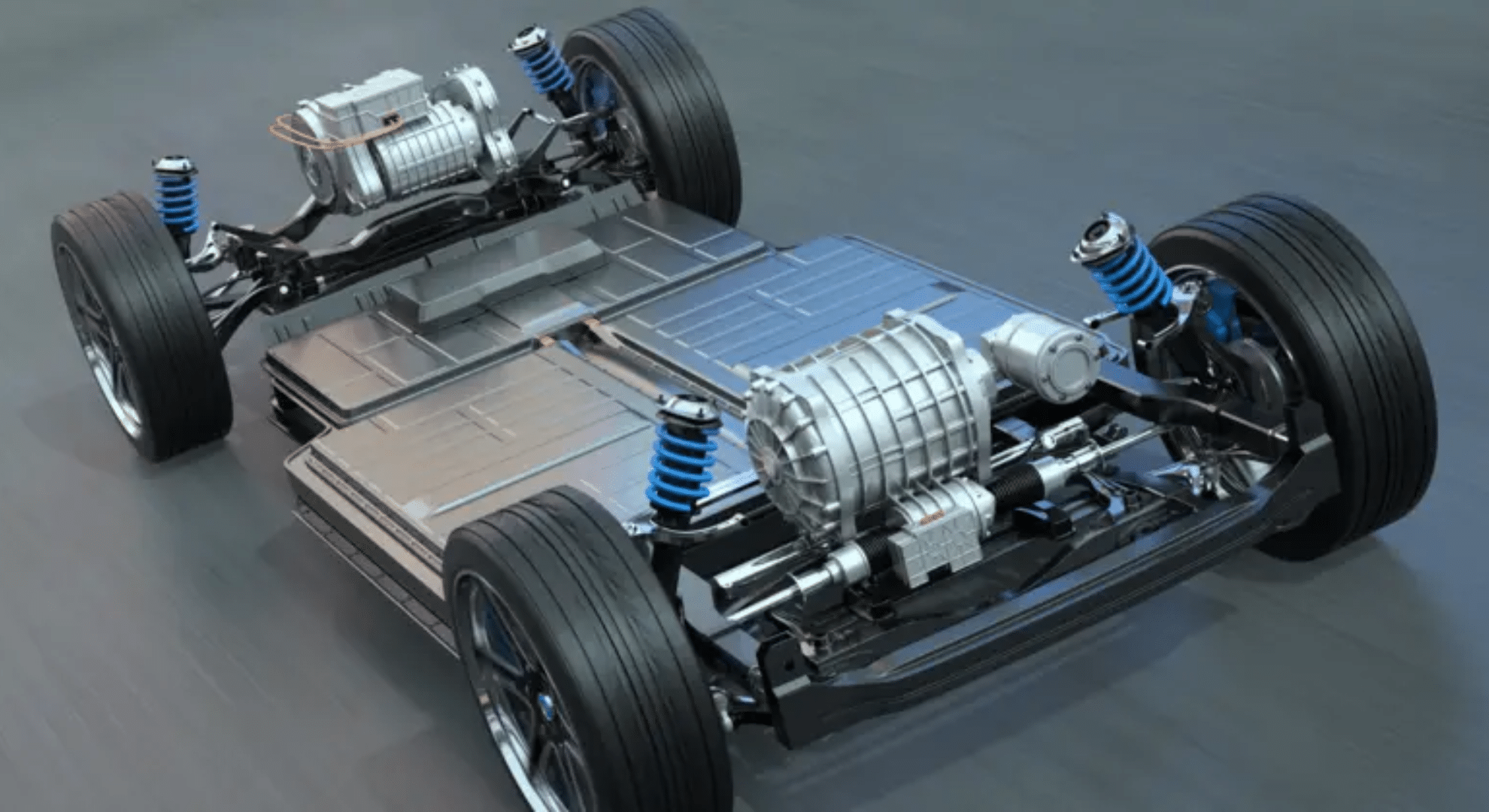

You’ll study how engines work and how power moves from the engine to the wheels.
This includes parts like the transmission, axles, and drivetrain. You’ll learn to take apart engines, find problems, and fix them.
This part of the program helps you understand what makes a car move and how to keep it running smoothly. Knowing how powertrains work is key if you want to be good at fixing cars or working in a repair shop.
Electrical and Electronic Systems
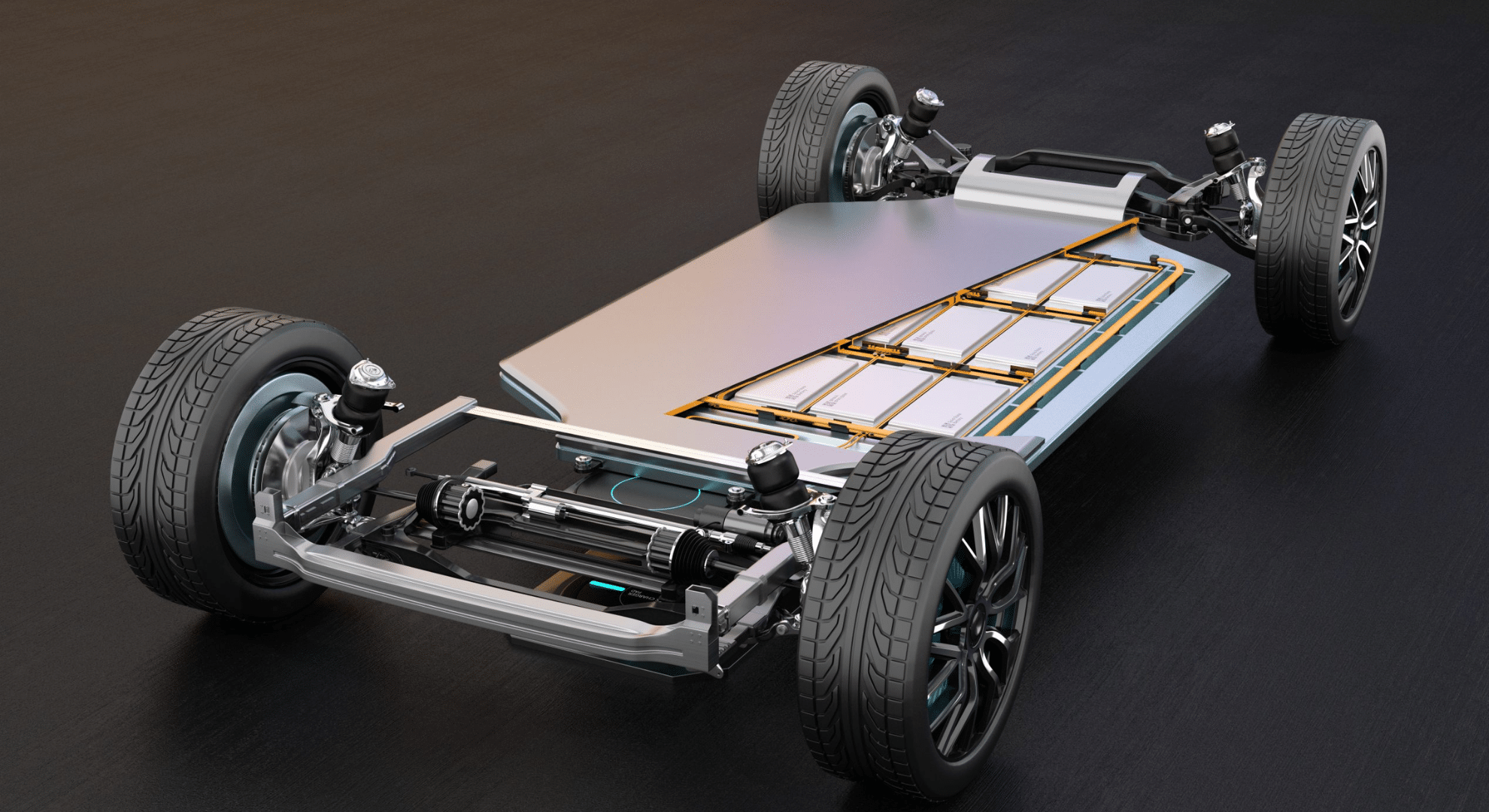

Modern cars have many wires, sensors, and small computers. In this part of the program, you’ll learn how to test and fix things like lights, power windows, and dashboard screens.
You’ll also work with wiring diagrams and tools to find broken parts. As cars become more high-tech, learning electrical systems is more important than ever.
This gives you the skills to work on today’s vehicles that depend heavily on electronics.
Brakes, Suspension, and Steering
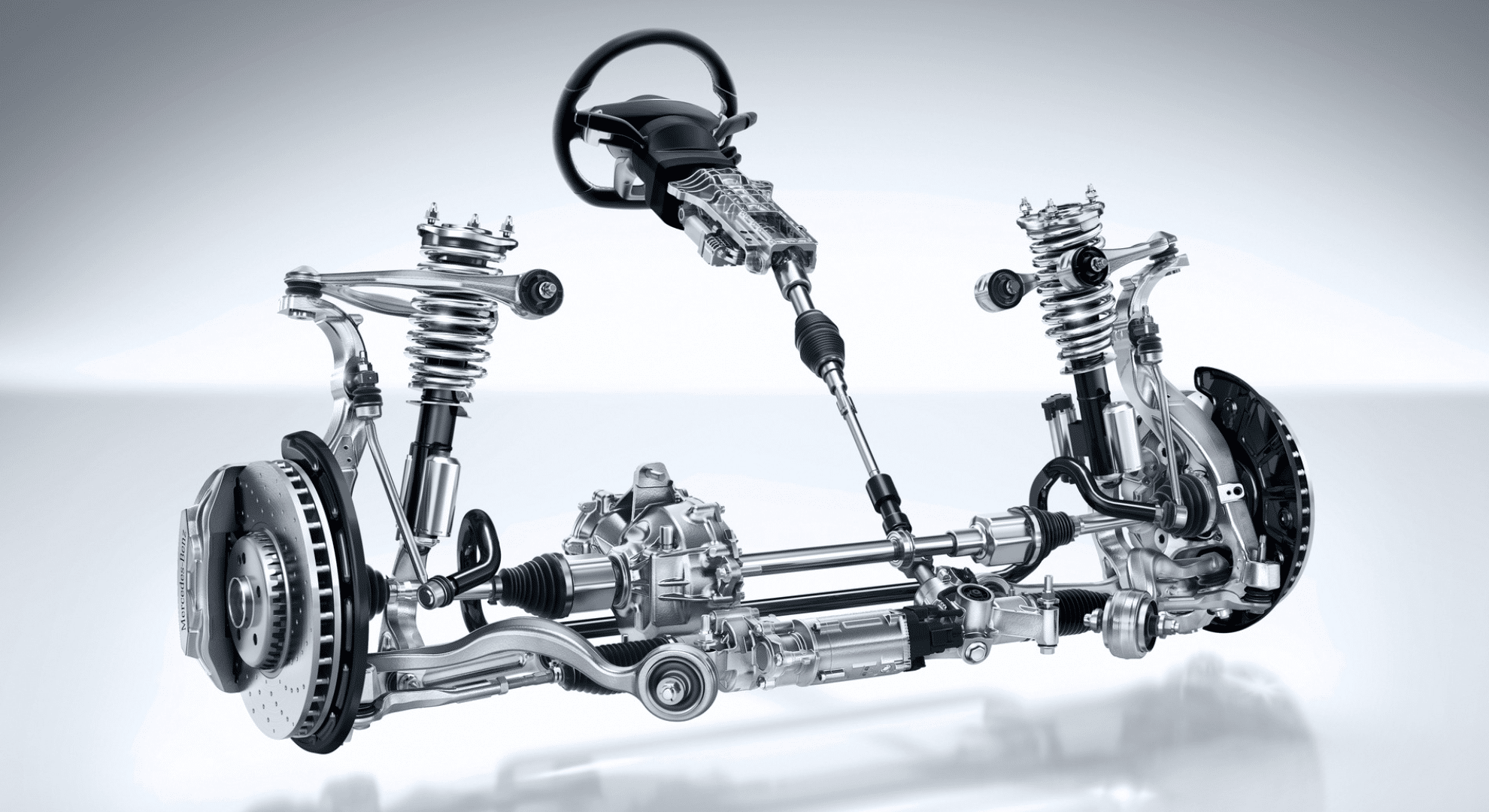

You’ll learn how cars stop, turn, and stay balanced on the road. This includes how to check and fix brake pads, shock absorbers, and steering parts. You’ll also study how anti-lock brakes (ABS) work.
These systems help keep drivers safe. Knowing how to work on them is a must for any technician.
This part of the training helps you spot problems early and make sure cars are safe to drive.
HVAC and Diagnostics


This part teaches how to fix heating, ventilation, and air conditioning systems. You’ll learn how to make sure a car stays warm in winter and cool in summer.
You’ll also learn basic diagnostic skills, how to find out what’s wrong with a car using special tools. These skills save time and money for both the technician and the driver.
Learning how to diagnose car problems is one of the most useful things you can do in this field.
Hybrid and Electric Vehicle Systems
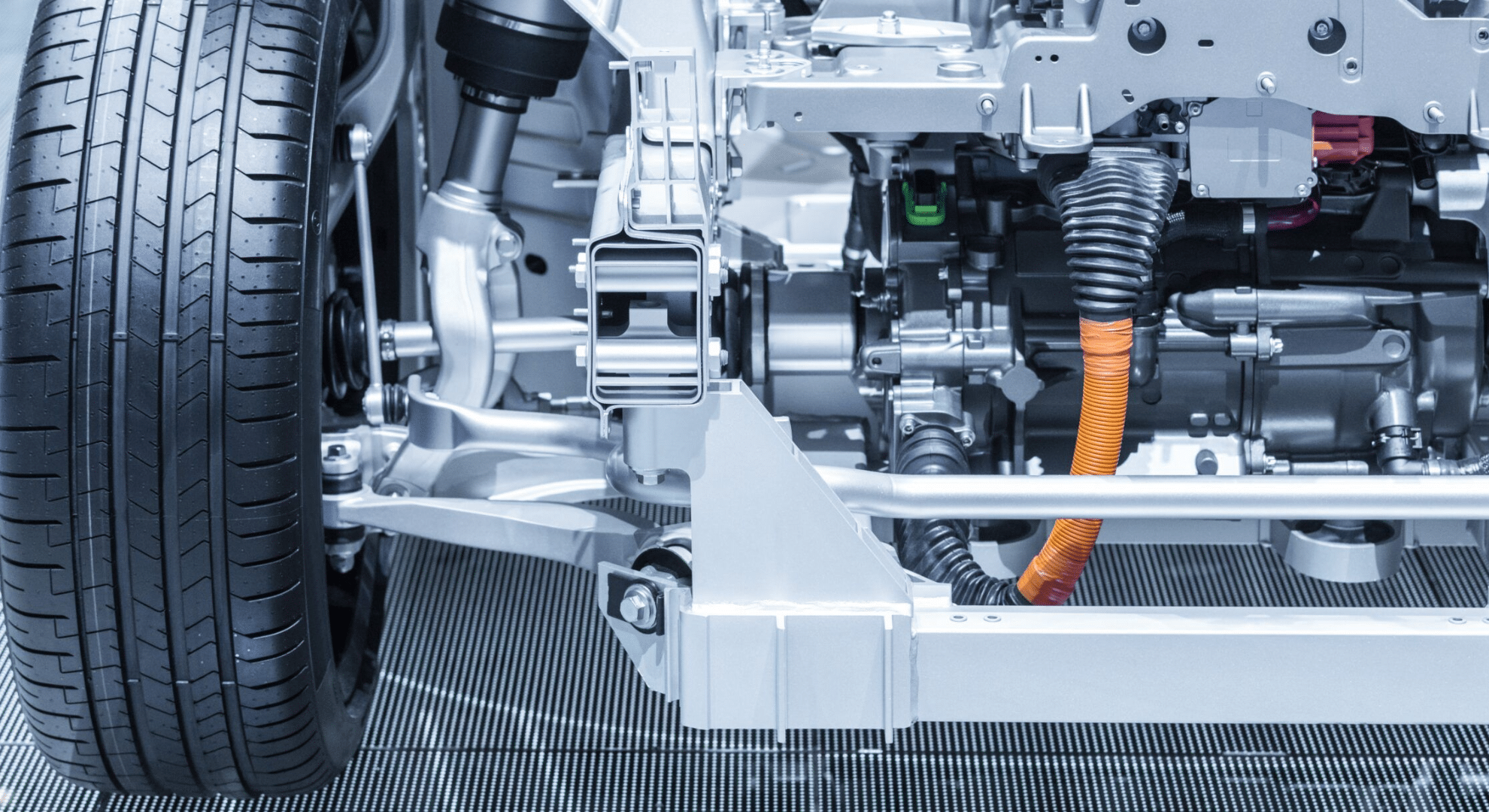

Electric and hybrid cars are becoming more common. You’ll learn how these cars work and how they are different from gas-powered ones. This includes learning about batteries, electric motors, and charging systems.
You’ll also find out how to safely fix and test these parts. With more people choosing electric cars, these skills are in high demand.
Training in this area helps you stay up-to-date with the direction of the auto industry.
Learning Automotive Tech: Core vs. Specialized Courses
When studying automotive technology, your training usually begins with core courses that build a strong foundation.
These subjects cover the essential systems and skills every technician must understand before moving into advanced work:
Core Courses:
- Engine repair and service
- Brake systems
- Steering and suspension
- Electrical fundamentals
- Safety procedures and tool use
- Basic diagnostics
These classes teach the hands-on skills needed to inspect, maintain, and repair vehicles safely and accurately. They help you understand how each part works together before moving into complex technologies.
After mastering the basics, you can move on to specialized courses that focus on advanced vehicle systems and diagnostics.
These are designed for technicians who want to work on modern, high-tech vehicles or pursue a specific area of expertise.
Specialized Courses:
- Hybrid and electric vehicle systems
- Advanced diagnostics and software use
- Heating and cooling systems (HVAC)
- Electronic control units (ECUs)
- Performance tuning and emissions systems
- Digital troubleshooting tools
These courses prepare you to handle the latest automotive technologies and industry trends, giving you the expertise needed to stand out in a rapidly evolving field.
Real-World Skills You’ll Build Through The Course
In addition to technical knowledge, your training focuses on developing the hands-on abilities that truly matter in the shop.
These real-world skills prepare you to handle everyday challenges with confidence once you start working in the field:
OBD Software Use


You’ll learn how to use On-Board Diagnostics (OBD) software to read trouble codes from a car’s computer. These tools help you find out what’s wrong without taking the whole car apart.
It’s fast, accurate, and a skill every modern tech needs. You’ll practice using scanners that plug into the car, read the codes, and help you know what part to check or replace.
Knowing how to use this software saves time and helps you fix problems faster.
Digital Troubleshooting
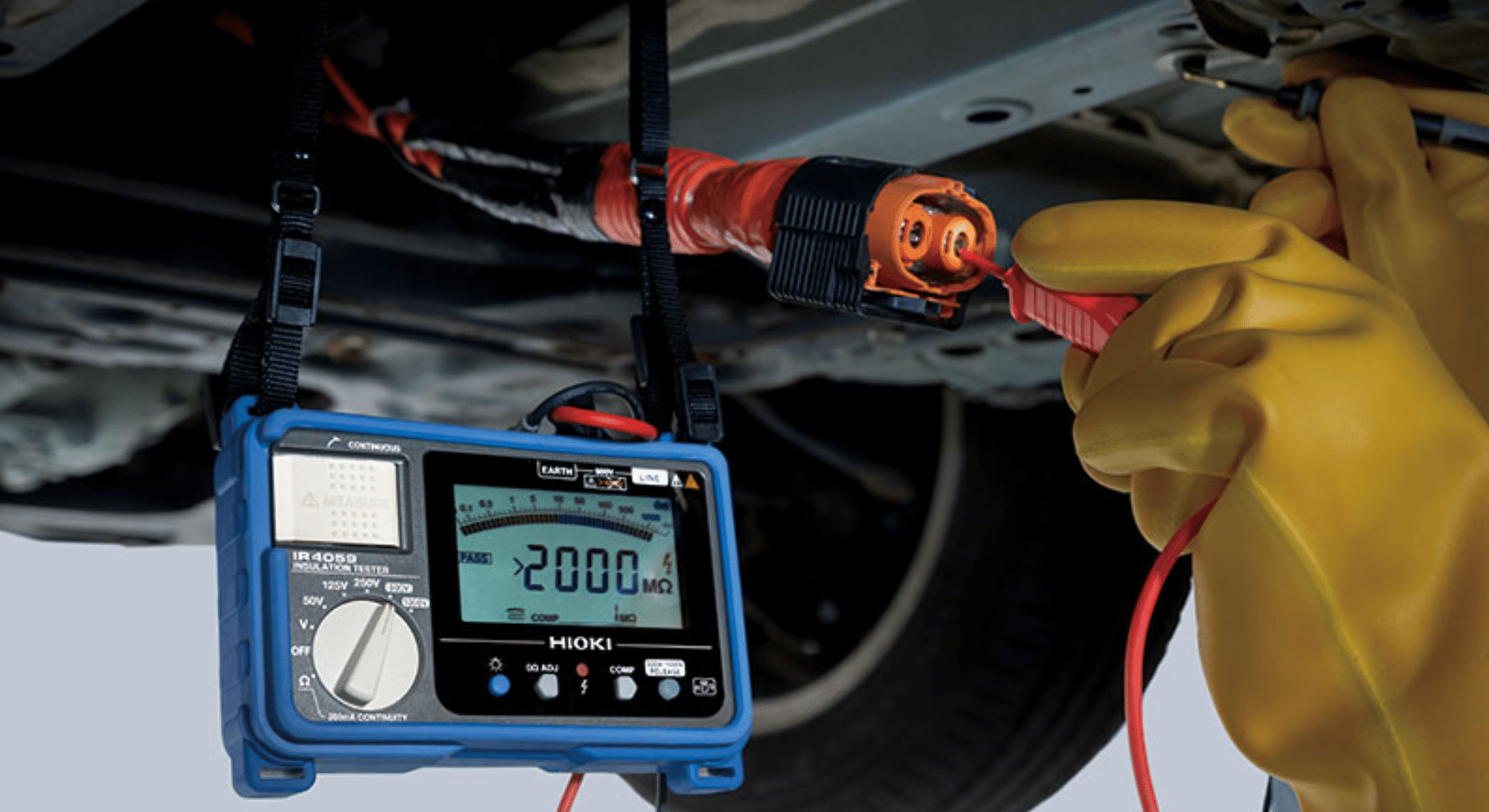

Today’s cars use many small computers and systems that must work together. You’ll learn how to test sensors, wires, and control units with digital tools.
This skill helps you fix tricky issues that don’t have obvious signs. Digital troubleshooting lets you find hidden problems by reading data, running tests, and checking system responses.
It takes some practice, but it’s one of the most powerful tools in your toolbox once you learn it well.
Safety Systems


You’ll study how safety systems work, like airbags, seatbelt sensors, traction control, and ABS. These are built to protect drivers and passengers in all kinds of situations.
You’ll learn how to check these systems and make sure they work the right way. Fixing or testing them safely takes careful work and the right steps.
Understanding these systems helps you make sure that every car you work on is not just running, but also safe.
Types of Automotive Technology Degrees and Certifications
Once you’ve built a strong foundation of knowledge and skills, the next step is choosing the right educational path.
Automotive programs come in several formats, each offering different levels of training and career opportunities.
1. Associate Degree in Automotive Technology
This is a 2-year program offered at many community colleges. It includes hands-on training and classroom learning. You’ll study engines, brakes, electronics, and more.
It often covers basic business or writing classes, too. Many students choose this path to get a well-rounded education and prepare for long-term careers in auto service.
- Duration: 2 years
- Cost: Lower than a 4-year college, often with financial aid options
- Entry Requirements: High school diploma or GED
2. Automotive Diploma Program
Diploma programs are usually shorter, 1 year or less. They focus more on hands-on skills without extra subjects like English or math. These are good if you want to start working sooner and prefer learning by doing.
- Duration: 6 months to 1 year
- Cost: Lower than associate degrees
- Entry Requirements: Usually a high school diploma or GED
3. Trade Certifications
Certifications show that you have certain skills or knowledge. They’re great for getting hired or moving up in your job. You can earn them through short courses or by passing industry tests.
- Duration: Varies (can take weeks to months)
- Cost: Lower cost, but it depends on the program
- Entry Requirements: Often, no diploma is needed, but some experience helps
Worldwide Well-Known Certification Programs & Top Schools
ASE Certification: The National Institute for Automotive Service Excellence (ASE) offers one of the most trusted certifications in the industry.
You can take tests in areas like brakes, engines, and electrical systems. Many employers look for this certification.
Manufacturer-Sponsored Programs: Big car brands like Ford, Toyota, GM, and Honda offer special training programs.
These teach you how to work on their cars using their tools and methods. These often happen at partner schools or training centers and may include paid internships.
If you’re serious about starting a career in automotive technology, where you study can make a big difference.
Some schools like this offer top-notch programs with modern labs, expert instructors, and strong industry connections:
- Universal Technical Institute (UTI): Offers diploma and advanced training
- Lincoln Tech: Known for hands-on programs across the U.S.
- Ferris State University: Offers a 4-year bachelor’s in automotive technology
- WyoTech: Focuses on hands-on skill-building programs
- Local community colleges: Many offer solid 1–2 year programs at a lower cost
Career Paths in Automotive Technology
An automotive technology degree opens doors to a wide range of hands-on and technical roles like this.
No matter if you enjoy working under the hood or prefer diagnostics and design, there’s a path that fits your interests:
1. Automotive Technician


You’ll work on cars and trucks, checking engines, fixing problems, and doing regular maintenance. You’ll use tools, read service manuals, and keep vehicles running safely and smoothly.
This is one of the most common jobs after finishing your degree.
2. Diagnostic Specialist


This job focuses on finding tough problems that aren’t easy to see. You’ll use scan tools, computers, and sensors to figure out what’s wrong.
It’s a mix of tech skills and car knowledge. This role is great if you like solving puzzles.
3. Electric Vehicle (EV) Technician
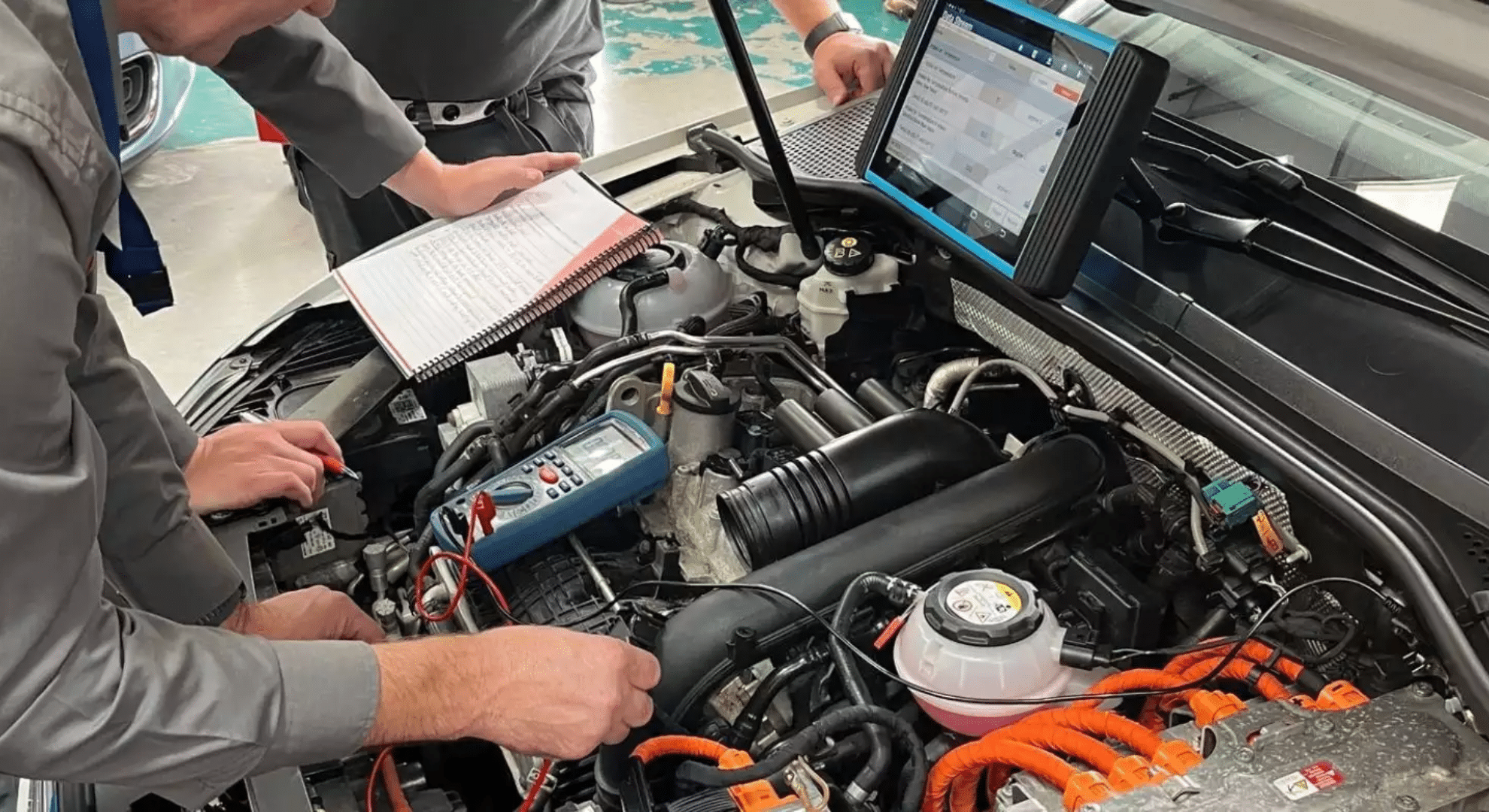

You’ll fix and maintain electric cars and plug-in hybrids. This includes checking battery systems, power cables, and electric motors.
As more people buy EVs, this role is becoming more needed in repair shops and dealerships.
4. Service Advisor


You’ll talk to customers, explain problems, and help them understand repairs. You’ll also work with technicians and keep repair orders organized. It’s a good fit if you like working with people and know how cars work.
5. Automotive Engineer


This job focuses on designing or testing parts and systems in vehicles. You could help build safer brakes, better engines, or improve how cars use fuel.
Some jobs may need more school after your degree, but many companies offer training too.
Opportunities in EV, Sustainability & Smart Vehicles
The auto industry is changing fast, with new technology reshaping how vehicles are designed and maintained. Here are some of the most promising opportunities in EVs, sustainability, and smart vehicle development:
- EVs are growing fast. You can work on battery systems, chargers, and electric motors.
- Green jobs are rising. This includes working on eco-friendly systems and reducing pollution in vehicles.
- Smart cars need tech skills. You could help with sensors, safety systems, or vehicles that talk to each other.
- More jobs in software and data. Cars are becoming like rolling computers. Knowing how systems talk to each other is a big plus.
- Fleet and mobility services. Some people work on large groups of vehicles, like delivery vans or ride-share cars that use smart systems.
The Future of Automotive Technology
The future of cars is all about smart systems, clean energy, and better safety. Electric vehicles are becoming more common, and many companies are working to build cars that create less pollution.
Batteries are getting better, and charging is getting faster.
Cars are also getting smarter. New models can help you stay in your lane, park by themselves, and even drive with little help. Some vehicles already use cameras, sensors, and radar to watch the road and warn drivers about danger.
Another big change is how cars connect to the internet. Cars can now send data, get updates, and even talk to traffic lights or other vehicles.
All these changes mean more jobs for people who understand both cars and computers.
If you like working with tech and want to be part of something that’s always moving forward, automotive technology has a strong and exciting future.
Conclusion
I’ve learned that what automotive technology isn’t just a simple question; it’s a deep mix of machines, systems, and skills that power today’s vehicles.
Understanding it helped me see cars in a whole new way, from how they work to the jobs built around them.
Now it’s your turn to take what you’ve read and think about how it fits into your own path. Maybe you’re thinking about a career, or just want to know more.
Either way, you’ve got a solid start. Want to keep going? Check out other blogs on the website. There’s always more to know, and this is just the beginning!

